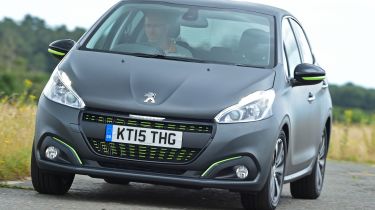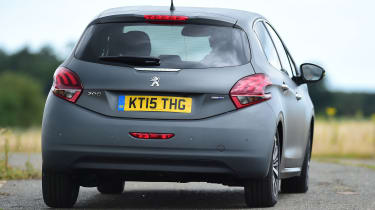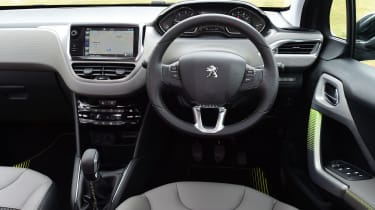New Peugeot 208 BlueHDi 2015 review
Can mid-life refresh keep 208 supermini competitive?

The 208 needed a bit of a revamp to keep it relevant in the supermini class, and while the personalisation touches do give it a boost, it’s merely treading water in what’s become a highly competitive sector. The efficiency updates for the BlueHDi diesels are a welcome addition, but overall there are more talented rivals in the marketplace.
With a wave of new models being launched in the supermini sector, it’s easy to overlook some of the class mainstays. And for that reason, Peugeot has decided to give its 208 a bit of a spruce-up to keep the car competitive.
• Best superminis on the market
As you’d expect from a mid-life facelift, the overall dimensions are unchanged, but there’s a fresh grille and revised headlights. Peugeot’s also added new personalisation options, including the matt-grey paint seen here, plus other upgrades both inside and out. There are more changes under the skin, too, with more efficient diesels, plus a boost in power for the flagship GTi.
The 74bhp BlueHDi diesel delivers the lowest emissions of any non-hybrid on sale, with a CO2 figure of 79g/km, while the 98bhp BlueHDi driven here emits 87g/km. That means both models are exempt from road tax, and company costs are cheap, too.
Used - available now
On the road, the 1.6-litre diesel sounds a little rough, while the stop/start operation is somewhat erratic, so you’ll struggle to match the claimed 83.1mpg. The five-speed gearbox – you only get six ratios with the more powerful 118bhp BlueHDi – suffers from the same vague and notchy shift as its predecessor. However, there’s plenty of torque, so the car feels reasonably responsive and eager to accelerate through the gears.
Through corners, the soft suspension delivers a reasonable amount of body roll, although there’s decent grip. Yet the steering isn’t very precise, while the stability control cuts in quite aggressively when you reach the grip limit.
Thankfully, the soft suspension means the 208 is reasonably comfortable around town and at motorway speeds, and is fairly refined for a supermini.
Unfortunately, the update hasn’t addressed the 208’s unconventional driving position. You still need to place the small steering wheel virtually in your lap to see the dials properly, which takes some getting used to, while the driver’s seat doesn’t adjust low enough to offer a natural position.
The touchscreen infotainment system is also the same as before, so it’s not the most intuitive to use, and build quality still feels a bit tinny when compared to some classier rivals.














